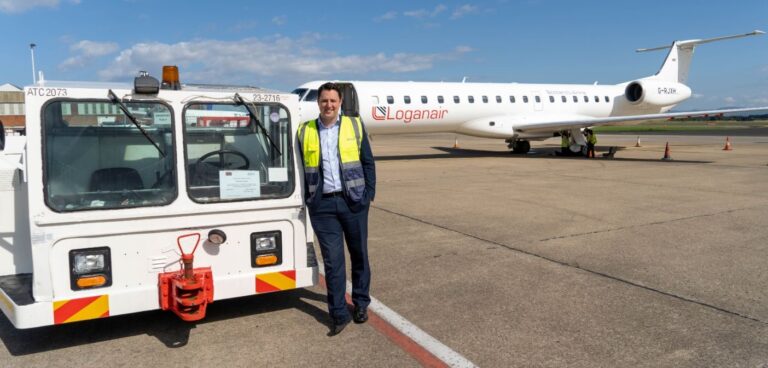Teesside Airport has today been announced as one the UK’s first pilot areas to test hydrogen vehicles as part of the Tees Valley’s status as the country’s Hydrogen Transport Hub.
The £2.5m project will see the airport, among other Tees Valley organisations, have commercial and support vehicles fitted with zero-emission hydrogen engines.
A ground support tug, which tows aircraft, will be converted to run on hydrogen from hydrogen commercial vehicle conversion company ULEMCo, while car manufacturer Toyota will supply two Mirai hydrogen fuel-cell vehicles with a range of around 400 miles, as well as a forklift truck for use.
Trials will aim to demonstrate that hydrogen-fuelled vehicles can be quick and easy to drive and refuel, cleaning up the air in local areas, as part of goals to meet net zero ambitions.
One of the most wide-ranging projects will see Toyota deploy a number of hydrogen vehicles across the region’s rapid response services, such as emergency response units for the Cleveland Police and NHS patient support.
It was announced, in September 2020, that Tees Valley would be home to the UK’s first Hydrogen Transport Hub.
The hub, in partnership with Teesside University, will form an innovation campus focused on clean energy research and development. It will lead research, development, and testing of new hydrogen transport technologies, including for cars, buses, trains, lorries, boats and planes.
Tees Valley mayor Ben Houchen said: “This is yet another huge boost for Teesside, putting our region at the forefront of the hydrogen revolution and developing fuels of the future. I want Teesside Airport to be first hydrogen-ready airport in the UK and this is the first important step.”
It was also announced today that HV Systems plans to demonstrate the use of hydrogen in delivery vans in the Tees Valley area. The vans will be operated in collaboration with a leading supermarket chain, running between 19 superstores and its main distribution centre.
The project aims to show how delivery vans fitted with fuel-cells can have increased range, faster refuelling times than battery-electric versions and speed parity with conventional diesel vehicles. Additionally, in collaboration with Sainsbury’s, Element Energy will also be trialling a hydrogen-powered HGV.





